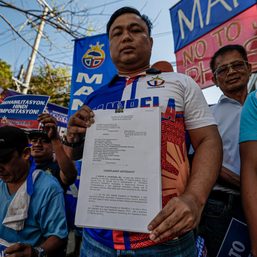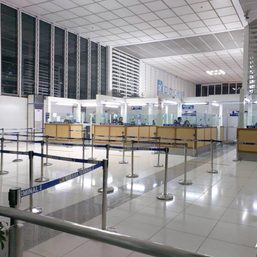SUMMARY
This is AI generated summarization, which may have errors. For context, always refer to the full article.
![[OPINION] We need to pay attention to Filipino law students’ mental health](https://www.rappler.com/tachyon/2023/04/lawyer-mental-health-april-17-2023.jpg)
Trigger warning: This piece mentions suicide.
One of my favorite movies is Rajkumar Hirani’s 2009 Hindu film, 3 Idiots. Aside from the likable characters, the comedy, and the songs, the film is notable to me because it is very relatable to the Filipino experience. This is particularly the case when it comes to the educational experience; while the film revolved around the aspirations of engineering students in India, I could relate it to the aspirations of law students in the Philippines.
In the film, we were introduced to three students that form the titular group. Rancho, the first of the three, is a brilliant engineering student with a passion for learning. Farhan, the second of the three, is a student who had to forego his dreams of being a photographer because of pressures from his family to pursue engineering instead. Raju, the third, is a student from a poor family who sees being an engineer as the solution to the family’s economic woes.
The three characters can also describe the composition of law students in the country. There are those who, like Rancho, enrolled in a law school because of an intrinsic passion over the subject matter. They really -want- to become lawyers. Then there are those who, like Farhan and Raju, -need- to become lawyers because of forces external yet coercive to them.
Being a lawyer is, after all, perceived to be one of the most prestigious and rewarding professions in the country. For Filipinos, being a lawyer is associated with nice cars, fancy suits, high income, and important socio-political connections. Families are excited by the prospect of having a lawyer in the family, and law students – despite not yet passing the bar – are already called by relatives and friends fondly as “attorney” in anticipation of what they someday could become.
The bright future that supposedly awaits these future professionals is often the focus of families and friends, while the road to that future is less often given attention. In the film, the pressures of becoming an engineer is so bleak that the film featured two student suicides. This begs the question: is the road to becoming a lawyer also the same? What do we know about the mental health burdens of Filipino law students?
Unfortunately, we do not know much. Much of the mental health studies in the Philippines, especially those that dwell on the phenomenon of suicide, are focused on adolescents and young adults. To a certain extent, this focus on the youth is justifiable because the Philippine population is a predominantly young population. This situation, however, leaves much to be desired when trying to achieve a fuller picture of suicide. After all, the youth cohort is not the only societal subgroup that has a greater tendency for suicide than others. One neglected group of potential suicide victims, for example, are legal education students.
The problem of suicide in legal education is an already recognized problem in other countries. In a survey of 15 law schools in the US, it was found that 2 out of every 10 law students engage in suicide ideation (Organ et al., 2016). What is it about the study of law that produces these higher rates of suicide experiences? It is not that the population of law students tend to have higher rates of mental illnesses.
The problem is more likely external, rather than internal, to the individual. The prospect of becoming a lawyer entails a lot of social expectations from law students – an expectation that friends, family, and their respective schools are quite vocal about. Aside from the pressure that legal education students in the country receive due to the social expectations from friends, family, and their respective schools, the cost of legal education, and the method of instruction in law schools may also add to the stress that the students experience.
A report on the price of legal education in the Philippines showed that tuition could cost around P50,000 to almost P130,000 per semester for private law schools, and roughly P20,000 to PHP30,000 for state-owned law schools (Macaraeg, 2017), exclusive of the costs of books which often cost at least P1,000 each and the costs of bar review.
In terms of method of instruction, law schools are known for their reliance on the Socratic method wherein each class session is spent with the professor interrogating the students through recitations about jurisprudence, legal provisions, and doctrines. The actual recitation process, and the long hours of study necessary to prepare for these recitation sessions, are often said to be stressful and consequential of a loss of sleep and leisure time with friends for law students, leading to a sense of exhaustion and isolation (see Bonoan’s 2014 and Rodriguez’ 2014 Rappler articles, respectively).
Law school, as insiders would often say, is a jealous partner, and one that demands a lot of sacrifices. As these sacrifices pile up, the idea of not seeing it to the end and reaping the rewards become harder and harder to live with.
All of these observations about law students abroad behooves us to look deeper into the mental health situation of our law students here in the Philippines. It is clear, however, that this is an endeavor that will require a lot of time and resources and will, therefore, not be easily implemented. For now, perhaps the best that we can do is to check up on our law student relatives and friends, especially those who are waiting for the results of one of the final steps of their journey to becoming a lawyer: the bar exam.
The bar exam is a major hurdle, and stressor, for law students. It is easily one of the most important moments of a law student’s life. As former Supreme Court Chief Justice Panganiban recalled, “The bar exam used to be attended by fanfare galore. Undergraduates held parades and motorcades complete with marching bands and cheering squads that accompanied their school candidates’ rides to the exam venue…. The mystique explodes when the results are released. Traditional and social media herald the passers, complete with the pictures of the topnotchers plastered on the front pages of newspapers and interviewed over radio and television. Law schools take enormous pride in their bar placers and average passing rates. One institution…gifts its top 10 with brand-new cars. The most prestigious law firms and best-managed companies offer fantastic opportunities and compensation to the top placers.” (2019).
Once those results are posted, the years of sleepless nights for a small proportion of bar takers will finally achieve vindication. For the greater proportion of those who took the bar, however, the results will mean heartache, doubt, and at least a year more of exhausting study and isolation from friends and family. It is most likely in this moment that our relatives and friends who are in law school will need our support the most. – Rappler.com
Mark Anthony M. Quintos is a Senior Lecturer, University of the Philippines Diliman; Assistant Professorial Lecturer, De La Salle University Manila; and Special Associate Professorial Lecturer, Polytechnic University of the Philippines.
Add a comment
How does this make you feel?
![[OPINION] Bar exams, failures, and the makings of a great lawyer](https://www.rappler.com/tachyon/2022/04/tl-making-of-a-great-lawyer.jpg?fit=449%2C449)





There are no comments yet. Add your comment to start the conversation.